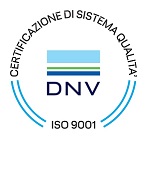Module 1. - Recent Developments in ESG integration
This module offers insights into the evolving landscape of sustainability integration within the financial sector. Participants will explore the driving factors of ESG demand, challenges and barriers to its seamless integration, and gain an overview of empirical studies that shape the narrative of sustainable investment.
Module 2. - Regulatory environment
Delving into the regulatory sphere, this module provides a comprehensive understanding of the current state of sustainability regulations both in the European Union and broader international trends. Participants will learn about regulations affecting corporations and investors, while also gaining foresight into emerging international trends and their potential market impact.
Module 3. - ESG-Strategies
This module discusses various strategies to incorporate ESG considerations. Participants will be introduced to the current sustainable investment landscape, different definitions and terms in this domain, and distinctive features of multiple ESG strategies.
Module 4. - Responsible investing across asset classes
This module homes in on diverse investment assets, elaborating on the specific ESG considerations pertinent to each. Participants will gain an overview of the unique ESG perspectives associated with different asset classes and learn how to tailor ESG strategies accordingly.
Module 5. - ESG Reporting
Designed to enhance participants' understanding of reporting, this module delineates the differences between reporting requirements and frameworks. It will familiarize participants with prevalent reporting frameworks and the trend towards convergence. It discusses what the major sources of ESG information are and the main ESG raw data issues as well as the reasons behind the use of indicators. Additionally, it discusses the two dimensions of double materiality.
Module 6. - ESG Integration in the investment process
This module provides a deep dive into the investment decision-making process within the broader investment process chain. Participants will learn about the general steps involved, understand the intricacies of integrating ESG considerations, and grasp its influence at key stages of the investment process.
Module 7. - ESG integration in fundamental research (Qualitative analysis)
Participants will explore the methodologies to integrate ESG data into investment decisions in this module. Topics of discussion will include the identification of ESG value drivers for both corporations and sovereigns, the qualitative analysis of corporate governance, sector specific ESG challenges, Green and Sustainable Banking practices, and the final synthesis of these analyses with business models and strategies.
Module 8. - ESG integration in fundamental research (Quantitative analysis)
The aim of this module is to dive into how qualitative analyses of material challenges can be incorporated into valuation models. The module will shed light on the influence of ESG data on financial forecasts and its integration within valuation models for varied asset classes.
Module 9. - Case study – ESG integration in the investment decision and climate change
This practical module synthesizes the teachings of the preceding eight modules. Through tangible examples in research and portfolio management, participants will acquire a robust framework for ESG-integrated due diligence. The module covers examples on integration in research and portfolio management.
The Climate change chapter provides a comprehensive and practical approach, exploring several key areas: the challenge of rising carbon emissions and temperatures, global efforts to increase transparency through climate-related reporting, and the adoption of comprehensive climate-related disclosure regulations. It delves into the external costs of carbon emissions, the dual nature of physical and transition risks, and corporate opportunities for mitigation and adaptation. Additionally, the chapter emphasizes the materiality of impacts, risks, and opportunities, measurement through climate-related metrics and targets, and strategic implementation of a climate change response within the investment process.
Module 10. - ESG Regional Developments
This complementary module offers a panoramic view. Participants will dive deep into a tailored exploration of ESG trends across three critical regions: Asia-Pacific, Latin America, and North America.
The Asia Pacific chapter presents the regulatory and investment landscape of key players: Japan's evolving sustainability initiatives, China's green financing surge, Hong Kong's sustainable investing strategies, and Singapore's pioneering ESG innovations. Gain insights into the broader Asia-Pacific market's trajectory in the global ESG arena.
The chapter dedicated to Latin America provides an overview of the main trends in ESG related practices in the region. It highlights the main regional disparities and focuses on corporate ESG practices, developments in ESG risk integration by financial institutions, as well as the main regulatory approaches in Latin America.
The North America chapter covers key developments in the burgeoning ESG industry in Canada and the United States. It explores in detail the recent US SEC proposal on climate-related disclosures, the revision of the fund name rule, as well as the Canada Transition Taxonomy and mandatory climate-related reporting in Canada.
(*) this content is complementary and will not enter in the exam.
PROGRAMME OBJECTIVES
The core objective of this programme is to highlight the role of ESG considerations within investment processes. Upon completion, participants will be able to:
- Understand the effects of ESG on risk and return.
- Identify various ESG investment approaches and strategies.
- Recognize the main market factors driving ESG integration.
- Systematically evaluate different ESG reporting standards, including the European Sustainability Reporting Standards (ESRS), with which the CESGA is fully compliant.
- Apply Responsible Investing principles across different asset classes.
- Integrate ESG throughout the investment process chain.
The “EFFAS Certified ESG Analyst" exam, in English, takes no more than 2,5 hours (150 minutes = 120 credits) and consists of multiple-choice questions worth 50% of the final mark.
The weight of the case study completes the remainig 50%.

